To study the self is to forget the self.
To forget the self is to be enlightened by the ten thousand things.
~ Eihei Dogen, 1200-1253
Stillness Speaks is pleased to offer this excerpt from Robert Saltzman’s new book The Ten Thousand Things which takes a unique and pragmatic look at awakening, free will, self-determination, destiny, choice, and who we really are. Robert has provided a PDF of his book’s first chapter, Awakening and Behavior, which you are free to download. This post provides an overview of this chapter. Unless otherwise referenced, all quoted material (italics) in this post is from the chapter.
We begin with a couple of questions posed to Robert.
Question 1: Hi, Robert. From a psychological point of view, how does awakening impact personal behavior? I remember a conversation in which you discussed a “six-year hangover” that seemed to revolve around the continuance of narcissistic behaviors by “Robert,” despite the sudden awakening experience you had.
Question 2: Robert, you seem to be a harsh critic of religion and spirituality, including not just the ancient book religions, but also new age spirituality, neo-Advaita, and the like. Is this something you felt before awakening, or did the awakening experience result in this skepticism?
Robert’s responses to these queries make up the substance of this chapter, Awakening and Behavior. Saltzman begins with the concept “awake.”
The word “awake” can be problematic even beyond the usual uncertainty about what one word or another really means. In the first place, “awakened” might seem to denote a kind of unchanging condition—a fixed state in which some person, the awakened one, remains or abides—but that is not my experience. In the second place, words like “awakened,” and “enlightened” sound rather grandiose for a perspective that seems quite natural—as natural, I’d say, as being roused from an afternoon nap and finding oneself alive and aware. So, before getting to the questions, I should clarify my usage of the word “awake.”
… awakening means the end of “spirituality” in the face of the undeniable understanding that all conjecture on the subject of “myself” falls short—must fall short—of actually explaining anything. In each moment, I finnd myself here as an apparent focus of awareness without ever having chosen to be here, without knowing what I “really” am, and without needing to know. I am well aware that what I see and feel is a concoction of some sort or another, but this world is the world I have, and so I, an apparent constituent of this world of mine, live in it and with it—not in a world of conjecture, supposition, and mysticism about ultimate matters, but here and now. That is what I mean by “awake.”
Saltzman relates a personal experience profoundly impacting his understanding, and influencing awakening…
I don’t recall mentioning a six-year hangover, but I suppose that refers to a serious illness I contracted in 1990, just around six years after the initial break-through about which you are asking. That illness struck hard just on the eve of the opening of an exhibition and book signing about which I had been feeling inflated and self-important. In the event, I was too ill to make it to the opening. Missed the whole enchilada.
During the ensuing months of anguish and recovery, I came to see that despite the abrupt experience of awakening, which felt entirely real and undeniable, I still harbored an out-and-out egotism about my work as an artist, as if I were the doer of that work, although I knew quite well that “ego-I” was not a doer of anything. So there it was in stark clarity—the split.
Awakening, or the awakening individual has to contend with the reality of the personality. Saltzman believes that “awakening then must be absorbed by sectors of personality that might be slow to catch on, isolated as they are by the habits and demands of self-interest. Seekers of enlightenment seem often to imagine that awakening will mean the sudden and absolute annihilation of the “personal self,” but that is not my experience. Awakening, I say, never ends, and neither does personality.”
Personality or the personal self is necessarily diminished by the emergence of the awakening self…“For me, an apparent personal self is still present, but has lost the authority of its judgments, certainties and pet beliefs. Gone too is the usual intense identification with personal history and autobiography as if one owned the past, or at least one’s little piece of it…Without its certainties and habitual attachment to self-fulfillment, and self-justification, the personal self has nowhere very solid to perch.”
Next, Saltzman turns to religious systems and awakening. How do traditional religious systems approach awakening within the context of defined and ordered belief systems as found in Christianity, Judism and Islam?
… those with a religious background sometimes approach that matter by means of reference to tradition. For an awakening Christian, for example, the experience I call choicelessness (things are as they are and cannot, in this moment, be different) might be exemplified by the words, “Forgive them Lord for they know not what they do” (forgive them because they have no choice).
Saltzman recognizes that Eastern and Western seekers hope to find salvation or liberation by attempting to “self-realize according to their existing concepts of a supreme being.” But to Saltzman, that kind of “salvation” looks like self-hypnosis, rather than awakening. Saltzman prefers to remain in the realm of not-knowing.
I know nothing about ultimate matters: nothing about submission to the will of God, as in Christianity and Islam; nothing about realizing one’s identity with Brahman, as in Hinduism; nothing about what happens when you die, and nothing about how all of this got here—none of it. All I know is the constantly changing flow of perceptions, feelings, and thoughts in this stream of consciousness…
Faithful to his iconoclast vision, Saltzman confronts the notion that a supreme being or anything else might be considered permanent within the universe.
Spiritual believers of many stripes assert, with unwarranted certainty, that a supreme being does stand apart from that stream. That supposedly conscious being, whether the Brahman of Hinduism, or the God of Christianity, Islam, and Judaism, is claimed to be permanent, eternal, and boundless. But in my own heart I do not know if anything is permanent, or even what “permanent” would mean in the vastness of this universe—even that small part of it of which we are actually aware. I have no reason to believe in anything permanent. Nor do I doubt it. I simply do not know, and that “not-knowing” is part and parcel of what I consider “awake.”
To Saltzman, “whether a supreme being exists or not is beside the point. Regardless of what you believe or disbelieve, undeniably, here you are.” The uncritical embrace of supposed inspired scripture, and notions of truth, faith and belief are all rejected by Salzman.
I have not a speck of interest in beliefs, conjectures, or faith of any stripe, not because one belief or another has been proven wrong or because I am an atheist or a materialist, but because this moment is suffcient unto itself without my needing to believe anything.
In awakening, one sees that concepts about ultimate matters are only passing thoughts in changeful human minds, not “Truth.”
Saltzman concludes the chapter with a personal story–guided by an awakened outlook and a diminished personal self–that led to his own significantly changed behavior.
“Sometime during my slow recovery from the illness that showed me the split between the undefinable mystery-self and the conventional ego-self, I lost the desire to continue my career in the art world. I was tired of the vanity and the overblown self-promotion on all sides, was put off by the company of all but a very few artists, and often had to drink to excess before being able to attend the openings of my exhibitions. Now I was done. I went back to school, obtained a doctorate in psychology, and began my work as a psychotherapist. So I suppose that is a change in behavior, if that is what you meant.”
Robert was recently interviewed by Rick Archer of Buddha at the Gas Pump … on Sat July 8th 10AM MDT. Also Robert has two short videos available which are well worth a watch, Awakening and You and Here Now.
*******
Dr. Robert Saltzman is an artist/photographer, and retired psychotherapist who lives and works in Todos Santos, Baja California. You can find out more about Dr Saltzman on his website.

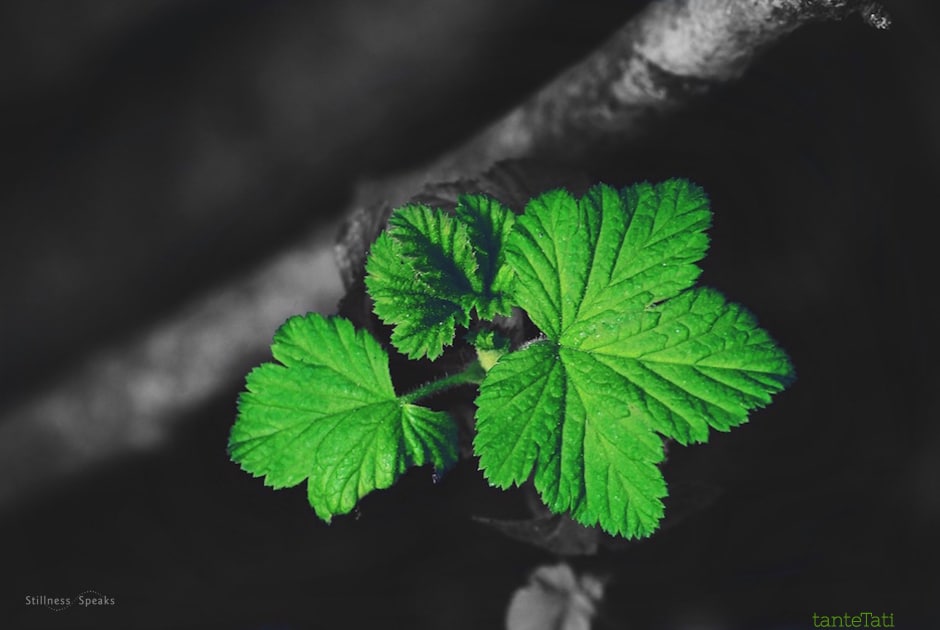



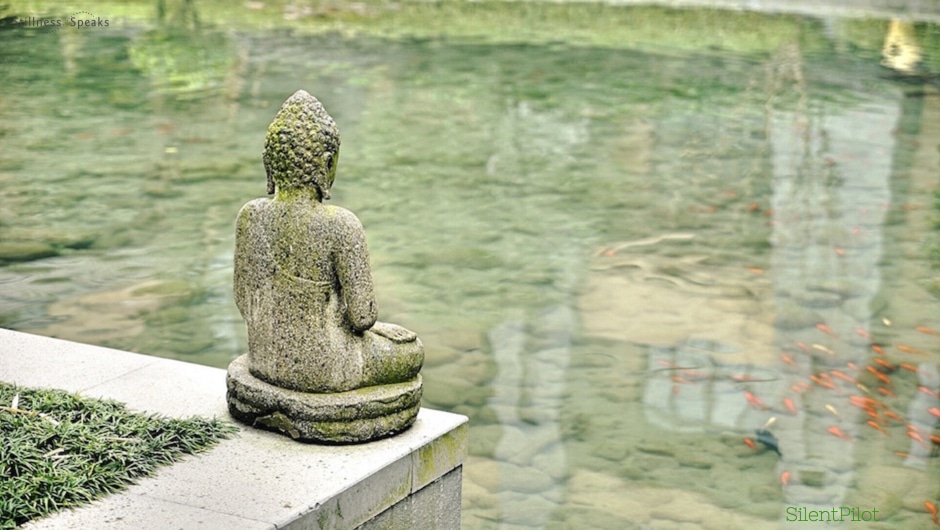

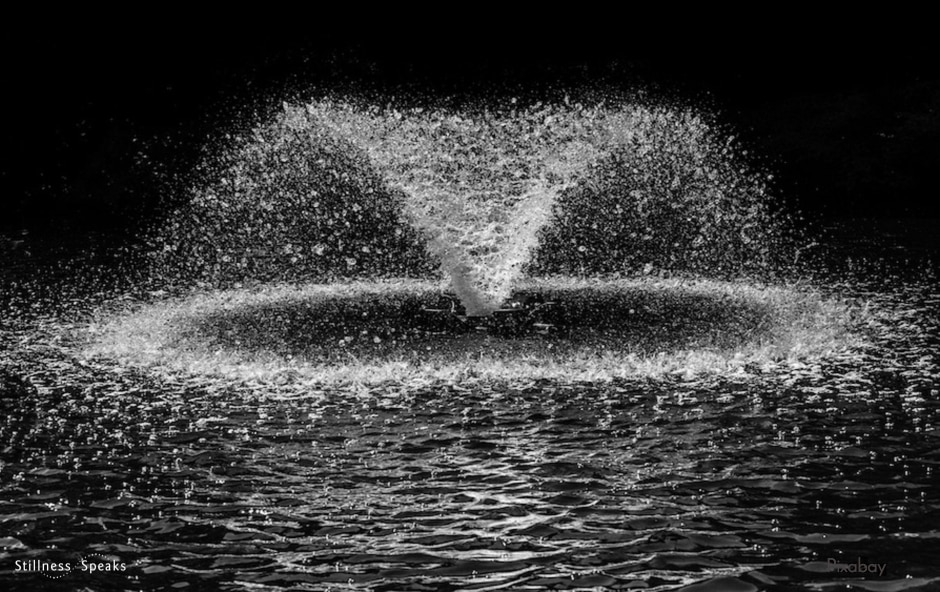
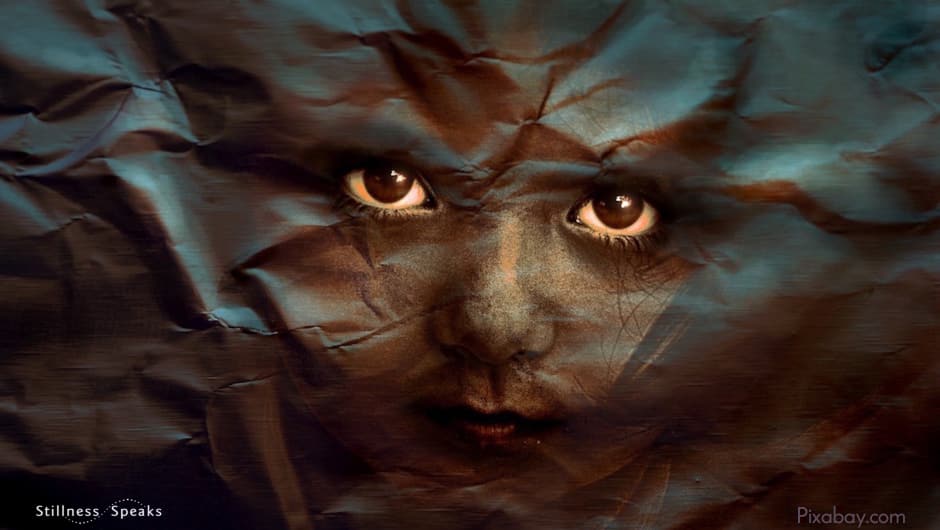


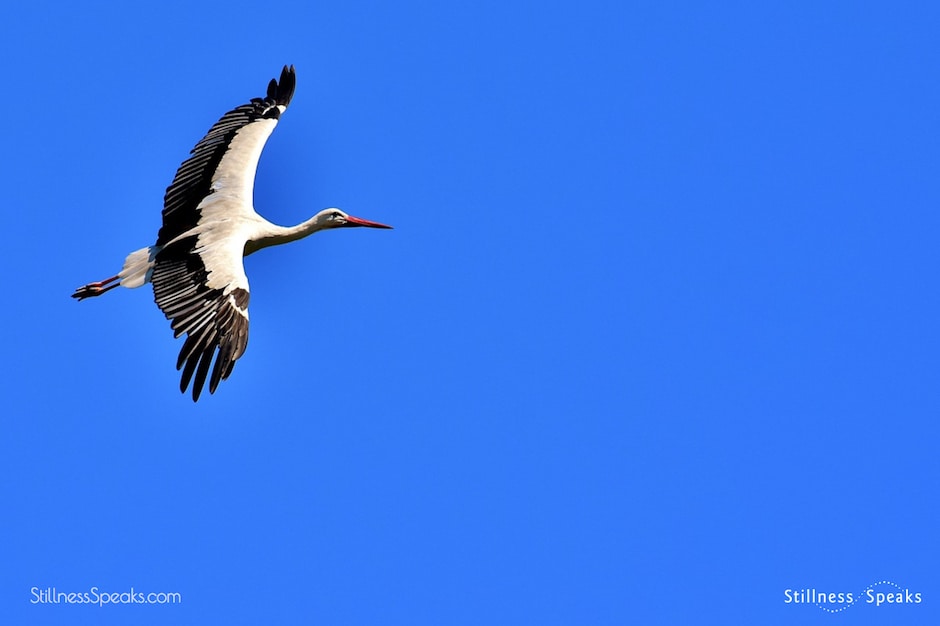
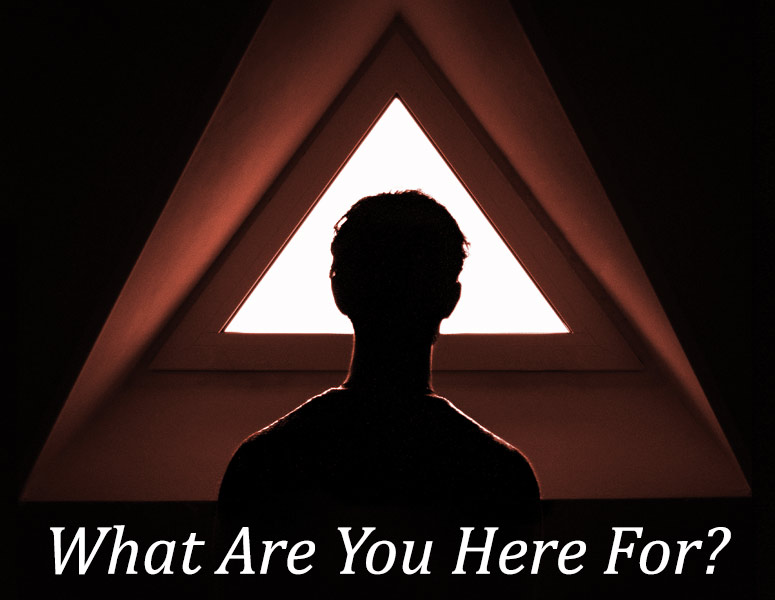
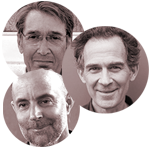
The Brahman of Hinduism is not a conscious being, but consciousness itself.
Alice,
Thanks for your comment.
Robert will come in here and comment as appropriate .. in a few days.
peace
sanjiv
Dear Alice, I have learned that in discussing these matters, direct, unvarnished honesty is the best way, so forgive me if the following seems unkind. That is never my intention, and those who know me will tell you that unkindness is the furthest thing from my mind. Because I am not identified with ideas and beliefs, nor do I care what anyone thinks of “Robert,” I just say what I see, and leave it to you to make of it what you will.
What I see in your statement is the attitude of someone who imagines that she “knows something,” when in fact she is speaking from ignorance. There is nothing wrong with ignorance—we are all ignorant in many ways. The problem arises when our ignorance—our “not knowing”—goes unrecognized, so that one’s mind is filled with mental pictures (beliefs) that do not match the world as it really is.
In the first place, your statement is factually wrong. Like all religions, Hinduism is a vast field of diverse beliefs and traditions not all of which are in agreement, and many of which are diametrically opposed to one another. That is certainly true of the concept of Brahman about which Vedantists have been arguing for centuries. If you would like to educate yourself about this, begin by exploring the meanings of the following terms: Advaita, Bedabheda, Vishishtadvaita, and Dvaita. In Davaita, for example, which is a popular form of Hinduism, Brahman is very much a actual being—a personal God very much like the God of Christianity.
But even if your statement had been true in some way, what would it really mean? What is “consciousness itself?” Do you know? And if you do know, how? In my view, that is a most crucial question worthy of being applied to everything one imagines knowing: how did I come to believe that, on what evidence?
This question, “what do I actually know, and how?” is so important, so urgent, in my view, that an entire book could be devoted to it. In fact, I have written such a book, The Ten Thousand Things, which goes deeply into that very matter, and I hope you will read it in it’s entirety, for it examines in detail the question of what one knows and how one knows, questions which many people who consider themselves “spiritual” prefer to ignore.
As to the present question, What is “consciousness itself?” I will conclude with a quote from Chapter 29 of The Ten Thousand Things called “The Source Of Consciousness”:
The phrase “everything is consciousness” can mean so many different things. Just for starters, we do not see the world as it “really” is, but in the way that each of us perceives it according to the structure of the nervous system and the previous conditioning of that system.
I have written about this before, using the illustration of a butterfly that can perceive portions of the energy spectrum to which we humans are blind. Able to sense many “colors” beyond violet, butterfly consciousness perceives a flower garden as we humans never will. My donkeys, whose hearing is phenomenally more acute than mine, and whose ears rotate independently from one another so as to focus on two different areas simultaneously, experience one auditory world, and I quite another. I know this whenever I walk with them.
So that is species-specific consciousness. Then there is individual consciousness which refers, for example, to the vast difference between how a trained artist, being aware of thousands of hues with only the finest gradations between them, would comprehend a flower garden, as opposed to the way an untrained eye, conversant only with relatively gross differences in color, would see the same garden.
So that is one way of understanding “everything is consciousness.” Things appear the way they appear due to type of nervous system plus individual conditioning—straightforward, yes?
However, there is another, much less straightforward way of using that expression. In that usage, “everything is consciousness” means not just that the material world looks, sounds, and feels different depending on the observer, but that the material world, including bodies and brains, does not exist at all except as a so-called “appearance.” That seems to be the way that Nadeen meant it and Linchitz understood it.
But what if there really is a material world, and brains really do exist? And what if evolved brains are the source of consciousness, so that what “you” are is not “pure consciousness,” whatever that phrase means (we don’t know what it means), but a physical body that happens to include brain-centric, nervous system generated consciousness that has flourished and developed genetically as a mechanism advantageous to survival? What if consciousness began to evolve with the first animate creatures, and has reached an apparent highpoint—on this planet, at least—in humans?
In that case—if consciousness is something that brains do—myself would not be an “unchanging oneness” at all, because brains, after all, change constantly. And, if “myself” is always changing, what could anyone ever really know about what is unchanging or even if there is anything unchanging?
Thank you Robert ,
For ” me” here it is “not knowing ” after almost a whole lifetime. (82 !)
The lack of choice and ” seeing through the character ” has been here for many years.
The second question asked of you gave pause for thought but I don’t think ” a harsh critic of religion and spirituality ” is probably correct for you ?
Even this is just the changing flow in the here and now ,as it is, the “shape Consciousness is taking”. Can’t be different and is “perfect”.
Anyway may I share a riddle from my 12 yr old granddaughter.
What is greater than God?
More evil than the Devil?
The poor have it,
The rich don’t
And if you eat it you die !!
Answer. Is of course. Neti Neti !!
With much love
Wendy
Wendy,
Thanks for sharing your thoughts … and granddaughter’s riddle … what a delight!
Robert will come in here and comment as appropriate .. in a few days.
thanks for dropping by,
peace
sanjiv
Dear Wendy, Thank you for your comment. Yes, neti, neti is a useful approach, one that protects against latching onto some “final answer,” which is a chief pitfall for so many people who imagine themselves to be “spiritual” when really they are simply self-deluded.
Actually, I am not a “harsh critic” of anything. From my perspective, what is, is, and in this moment cannot be different, so what is there to criticize? The idea that I am “criticizing” religion and spirituality arises, I think, because I have no interest in religion at all, and see most of so-called “spirituality” as a rather sad way of cutting experience, which is all of a piece, in two, creating a so-called “world of spirit” that is said to be different from and separate from the so-called “material world,” when I recognize no such division.
The Ten Thousand Things examines this question intensively, so as I did in reply to the comment above yours from Alice, I will conclude with a quotation from that book. Here are the first few paragraphs of Chapter 22, “Why Do You Dismiss Spirituality Entirely?”:
Q: Robert, I find your words interesting and provocative, but when you dismiss spirituality entirely I find that I cannot accept that. Spirituality exists all over the world and throughout history. Spirituality is a reality for billions. How can you, an individual person, simply wipe away all of that just by calling it magical thinking, or escapism?
A: That’s a fair question, and I am willing to discuss it, but the most direct answer is that long ago a sudden and unexpected change occurred in my way of understanding self and world. My sense of being was transfigured all at once, and drastically, so that the ideas and beliefs called “spirituality,” which seem to occupy so much thought, so much debate, so much struggle, and so much unhappiness, to my mind seem moot, hardly worth discussing.
If you imagine that I dismiss spirituality entirely, most likely you have misunderstood my words. The word “spirituality” comprises a large bailiwick, and certainly there are parts of that territory which I do not dismiss, at least not entirely. I have even quoted at times sources normally considered to be part of “spirituality,” although I don’t see them that way myself. If I quote, I am quoting what I consider to be wisdom, not “spirituality.” And there is a difference—a vast one.
Further, I do not walk through this world blithely “dismissing” spirituality like some public atheist. My words here are largely replies to questions from people who have recognized in my outlook a kind of freedom they have been seeking for themselves, but have not found in religion and spirituality. I’m speaking to them, not to those who find meaning in worship or in pursuit of so-called “self-realization.”
If some such version of “spirituality” flips your pancake, fine by me. People in this world believe all kinds of things. To each her or his own. I am not trying to tell you what to believe. That damage has been done already. I just say what I see.
Ever since that sudden change I mentioned, I have no beliefs and don’t need any. In my world, there is no certainty. I don’t need that either. In my world each moment is unrepeatable, once-upon-a-once, sui generis—a thing unto itself–so participation in each moment freshly, without being weighed down by the premature cognitive commitments called “beliefs,” is the way this eagle flies.
No one, I say, chooses what to believe. Most likely each of us is born with a certain propensity to believe what we are told, and then the substance of those beliefs depends upon what we are told. It is as if one is born with a cup waiting to be filled with ideas, but the content of that cup depends on the luck of the draw—one’s family of origin and its mythology, plus the authoritative precepts of the wider cultural surround.
It is likely, for instance, that a child raised in a devout religious family, living in a neighborhood of similarly devout families will grow up believing in a “supreme being,” while the child of atheists whose friends are atheists too will believe that “God” is a mythic character. Both children, however, will have had those beliefs imposed upon them, most often intentionally by means of purposeful indoctrination, or at least by osmosis.
If we can agree that no one actually knows whether the supposed supreme being exists or not, then in both cases, the children will have had beliefs presented to them as if they were facts. That’s how the damage is done. Once indoctrinated in that way, many people simply conform, and never even notice having been indoctrinated. Others struggle with their doubts. Some replace one set of beliefs with another. Only a few, it seems, manage to find what Jiddu Krishnamurti called “freedom from the known.”
But that very freedom—freedom from the known–is what my correspondents want to discuss. So freedom is the subject under discussion here, not “spirituality,” a topic for which I have scant enthusiasm. Unlike the gurus and preachers, I make no claims for the facticity of my views. This is not proselytizing. My words are self-expression, not dogma. If asked a serious question, I reply as plainly as possible without regard for anyone’s feelings.
With that as prologue, I regard most of so-called “spirituality” as a collection of superstitious behaviors and baseless conjectures passed from generation to generation via indoctrination beginning in infancy—a schooling principally in magical thinking and self-deception. The worst feature in that landscape of nonsense is the idea that the world we see with our eyes is somehow less “real” than some other “better” world, and that if we could somehow enter that “other world,” either after death, like a Christian or a Muslim, or here and now like the “self-realizers,” the pains of ordinary life would be magically transformed into “perfection.”
Once that idea takes root, then comes the need for so-called “faith,” along with doctrines, practices, and instructions, all aimed at attainment of that perfection.
From my perspective, that is a sad spectacle. Children, I say, need facts, not “faith.” Children thirst for facts, particularly facts about living and dying. If you doubt this, just watch how a child’s interest perks up when an adult for one reason or another begins to speak candidly.
The human body has no “spiritual” needs. The body needs air, water, food, clothing, and shelter, not god, salvation, or self-realization. It is not the body that spirituality aims at “saving,” but rather the collection of habitual thoughts, attitudes, and feelings called “myself.” That self—“myself”–when faced with its own unstable, transitory nature–including the fearful suspicion that “myself” will die when the body dies–craves a way out. In response to that craving, the story arises of another world or another way of being in which death is not “real.” That story, I say, is pure, one hundred percent speculation motivated by wishful thinking. That is the kind of “spirituality” I discredit as escapism.
Awakening is simply going from ego-personal mind (human mind) to the universal/cosmic mind(non-personal) mind; but is still within a Mind. Many awakened people deny or are unaware of spirituality because they consider the Universe as “It”. Even though universe is an appearance, a vast space filled with objects. Remember whatever appear will disappear. That’s why Ramana Maharshi said that the Realization is not complete as long as objects are in your view(universe). In other words you will to leave the objects behind to access the pure Subjectivity of the “I-I”. Because that’s where you access the changeless Eternal Being.
Awakening is nothing more than expanding from a limited to a seemingly unlimited Mind. But it is nevertheless only an expansion of the Mind.
Shad,
Thanks for dropping by and taking the time to comment.
Robert will come in here and comment as appropriate .. in a few days.
peace
sanjiv
Hello, Shad–
A mind filled with second-hand ideas, is not an awakened mind, but a hypnotized mind.
Based upon what you have written here, you are not speaking from experience, but parroting things you have heard and read without having understood them, or having subjected them to the light of a full and honest investigation.
I do not mean this as an insult; it is only an observation. It appears that you have never gone deeply into these matters, but instead have adopted as “Truth” a few seemingly authoritative ideas that sounded good to you—concepts straight out of classical Vedic dogma—and now imagine that you have the power to “teach” others, which is the tone you take here.
Your “comment” isn’t really a comment at all, is it? Your words have no relation whatsoever to the ideas I presented in the chapter called “Awakening and Behavior.” Instead, your words serve only as a pretext for you to assume the role of the “enlightened one” who already understands everything and will now enlighten the rest of us. That is a rather sad, but not uncommon ailment. Lots of people spend years of their lives, or even their entire lives, in that self-deluded condition. In the words of the twelfth-century Zen teacher, Foyan, “You have mounted the donkey, and having mounted, refuse to dismount.”
You are just so sure of everything. No mystery remains, no questions. A totally closed mind. You come on prepared to teach us what “awakening” is (“Nothing more than . . . .”), but from my perspective you seem hypnotized, not “awake” in the least. Most likely, you will not really hear that, but in case you do, I’d suggest the following:
Forget everything you think you know. Forget Ramana Maharshi, and what you imagine he knew of which you have not the slightest idea. Open your mind, which you do by draining it of dogma and certitudes. Open your eyes to the world around you without trying to sell yourself on the idea that it is just an “appearance.” Admit that you know absolutely nothing about what the world you see is or isn’t, or even what “myself” is or isn’t. Observe each moment freshly, as if you knew nothing at all about anything, and then see where you are.
Hi Robert,
After reading all of your replies and the article itself I find myself ntrigued and just plain excited to start reading your book. I like that you said I don’t care what you think of “Robert”, that kind of hooked me in to keep reading to be honest, simple statement, but it caught me more than anything else. It took a long time, and it gets easier everyday , but When I began to stop judging and dictating everything “Jennifer” should say, do, think, act like in response to situations and just left myself alone to be free to live each day/minute/second as it happens and not have a set response but jut whatever it is at that time, the first time I laughed out loud, I still do…a lot. The only way I can describe it is each moment I experience is being looked at through the same eyes I’ve had since I was a child, like each moment is something unexpected and anything could happen, it’s all a new experience that I’m having, just genuinely feeling, it’s the most simple concept to say to someone, just be you and be amazed, but the minute you start to analyze it, it goes away. So like I said…I’m excited to hear about your experiences. ?
Hi Jen,
Robert will drop by in the next day or so if he has a comment.
Thanks for dropping by.
Sanjiv
Hello, Jen–
Based on what you have shared here, you are in a good frame of mind to enjoy reading The Ten Thousand Things. Since you have said that you have been able at times to ” stop judging and dictating everything ‘Jennifer’ should say, do, think, act like,” I encourage you to read this book in the very same nonjudgmental spirit.
What is being said in The Ten Thousand Things is not entirely unheard of or unprecedented, but it is rather unusual, and the most useful approach, in my view, would be to read the entire book without judging or coming to any premature conclusions.
Once you have completed all forty chapters–no worries, it’s an easy read–then see how you feel. I have heard from many readers that the words in this book have had a positive, encouraging, mind-opening effect on them, and I hope that will be true for you as well.
Please comment again when you have completed your reading.
Good luck, and be well.
In your book you mention that ‘Each of us sees a different world, and what each of us sees is oneself.’ If that were literally true I might move a few forests and mountain ranges around to suit my particular taste in scenery. And I will abstain from making a crude joke about seeing myself in the body of a naked woman. So I assume you are talking about how we color in the wireframe matrix we call reality using our ‘creative conditioning’ and then interpret the resulting images through yet another bank of filters and sub-conscious sub-routines, aka, malware in many cases. So what is presented as our experience is quite different for each of us even though we are all following the same GPS signal. Eight oz glasses containing four oz of liquid then get interpreted as half-full or half-empty, or in my case, ‘you call that a full pour?’
I’ve been bouncing off belief systems like a pinball longer than I care to mention. It is refreshing to hear/read someone say they are just an unfortunate side-effect of an overactive prefrontal cortex. Amen to that. Actually, I knew that, but just wasn’t sure. Other species have their own problems such as shorter lifespans and a lack of opposable thumbs, etc. but at least they don’t suffer from imagining stuff that isn’t there. Reality is scary enough without any embellishment. Having said that, I have to admit I am still envious of some of these guys who supposedly had a textbook awakening which inspired them to write a book about it that sells pretty well and then they go on Oprah or even Batgap or ConsciousTV and sales go through the roof and they get to travel on book tours, get wined and dined, stay in nice hotels, etc. etc. Not bad when you consider all they had to do was sink into a suicidal ‘dark night of the soul’ and then somehow snap out of it in dramatic fashion. When I was a kid you had be be Elvis to become famous that fast, not to mention having some measure of talent. But who cares if the believe system you woke up with is bogus? Life is good. But try as I may I never popped awake any more than I ‘got it’ in EST or got ‘clear’ in Scientology or resolved my low self-esteem issues with a shrink. All I got from reading a thousand ‘self-help’ books was the urge to author one of my own and compensate for my chronic low self-esteem that way, but I could never stick with one brand of snake oil long enough to sell myself, so how could I persuade anyone else? I did stick with one guy for a whole decade because his take on reality was so unique and he claimed he didn’t want any followers or anyone’s money. His term for enlightenment or awakening is ‘Clear Awareness’ and you achieve that by scouring your psyche of all the root causes to the problems you want to resolve. Scrub your subconscious store of all that is false or undesired and all the outer effects they produce stop, including health problems. I finally drifted away because I couldn’t keep from dozing off after doing the relaxation exercise. Plus his ideomotor response technique for eliciting truthful answers from the subconscious didn’t seem real to me. That’s when I came upon non-duality where all you had to do was drop ONE belief and it all collapsed like a house of cards. You magically woke up from the dream of being a separate self in a world of separate objects. The other system required years of painstaking delving inward to root out one false belief at a time, and I am a big fan of the Lazy Man’s Guide to Enlightenment.
Sorry to prattle on. I guess my question to you is this: When you dropped all beliefs, did that include the self-image folder? I see that being where all the beliefs and assumptions and other self-referential thoughts are stored. And most people in your former profession seem to agree that what we believe or accept as fact about ourselves, however inaccurate it might be, plays a huge role in how our behavior and experiences are interpreted. If you absorbed some suggestions in early childhood such as ‘you are lazy and good for nothing’ (one of my personal favorites) or simply you are inadequate, dumb, stupid, clumsy, or just bad ‘just like your father’, or simply noticed that little Johnny can draw better or catch the ball better than me, therefore I am inferior to him, etc. Behavior follows belief which produces ‘evidence’ that reinforces the belief and off it goes for perhaps a whole lifetime. OK, I’ll shut up now.
David,
Thanks for taking the time to comment.
I’ll inform Robert today about your comment … and he may drop by in the next few days.
thanks
sanjiv
I very much enjoyed reading all that .
Robert,
I am curious to know why you seem to insist on the epiphenomenal view of consciousness or at least the possibility of it so frequently in your book. The very brain that you perceive as well as the body are perceptions themselves in your stream of consciousness.
To postulate a world that exists outside of your ability to perceive and then subsequently postulate that something outside of your ability to perceive causes the only thing that you have ever known seems quite a stretch. As well as unnecessary. Some form of idealism would certainly seem more parsimonious and less redudant. At best you have to admit some form of ontological idealism or at the very worst epistemological idealism.
You also admit in your book quite frequently that all you will ever know or could ever know is the stream of perceptions that occur as you. And that you have no separation from your environment or free will of any kind. You seem to agree with advaita vedanta more often than you would like to admit. It seems to me you would like to appear more like someone who fearlessly stares into the abyss of not knowing.
You could just as well have said, “For all practical purposes, all that exists is your awareness and nothing other than this could or will ever be known in the literal sense.” Nisargadatta himself was known to make similar statements. There is nothing new in your book although it is packaged as if you are new or different like some kind of revolutionary awakened teacher. But to me you seem more intent on haranguing other paths to the exact same realization that you claim to have.
Thank you for your time,
Steve